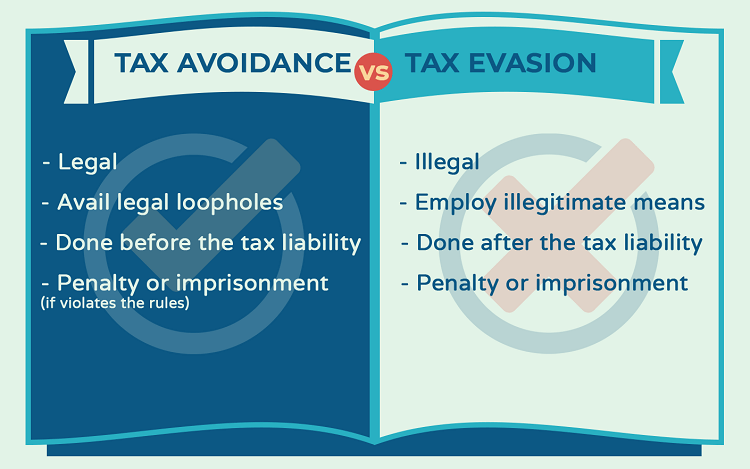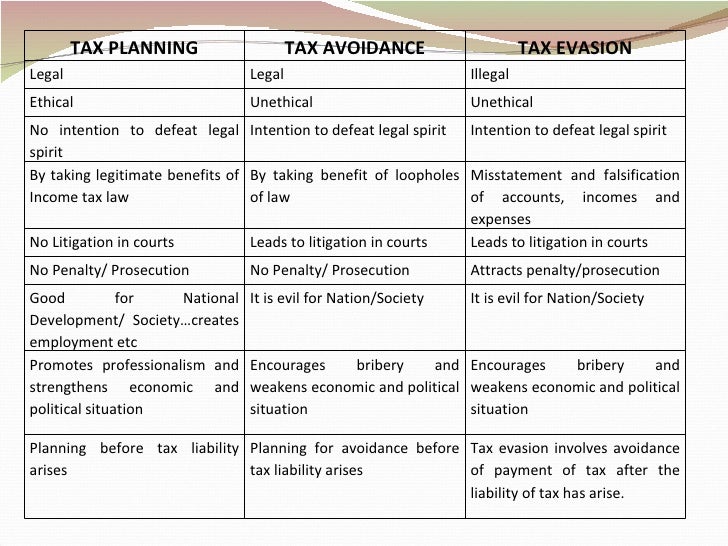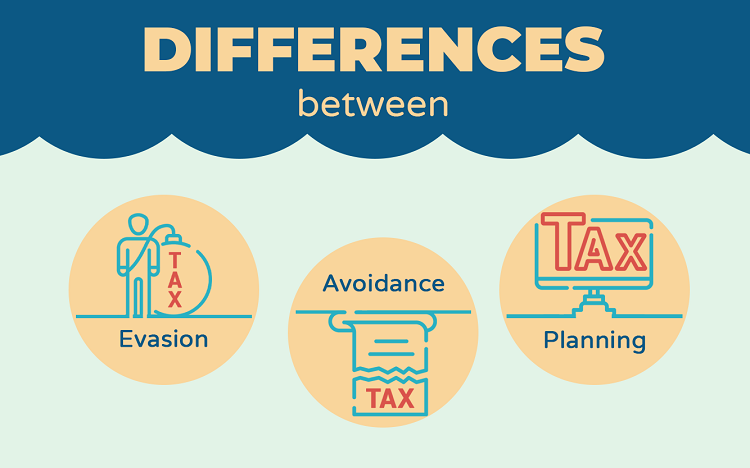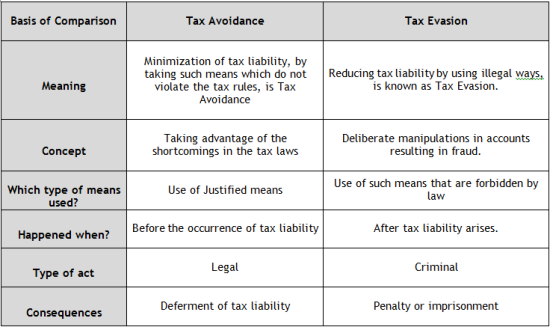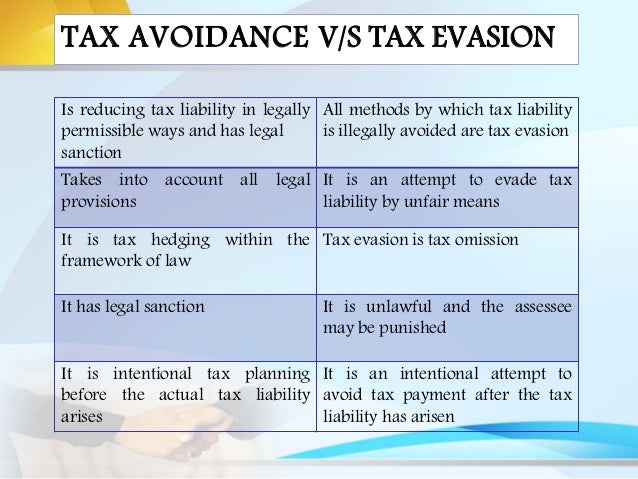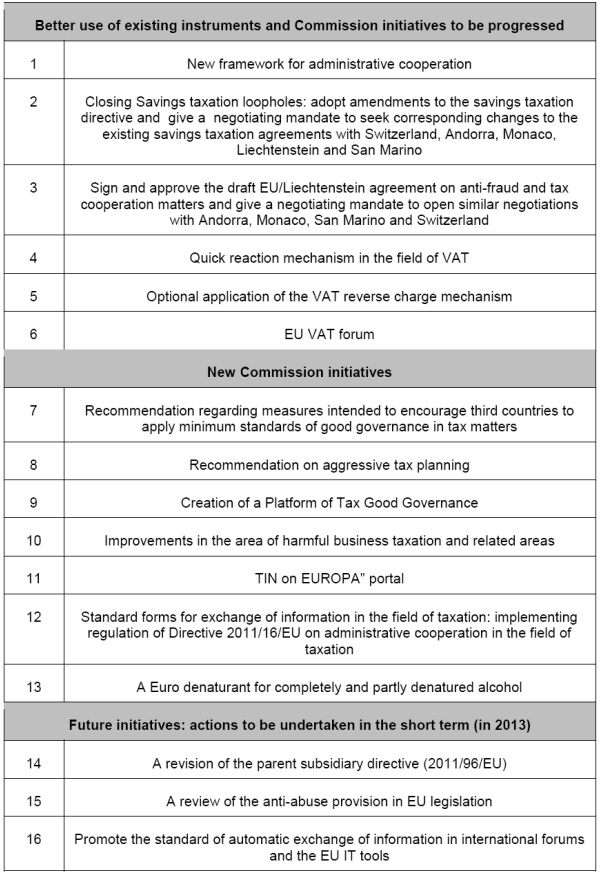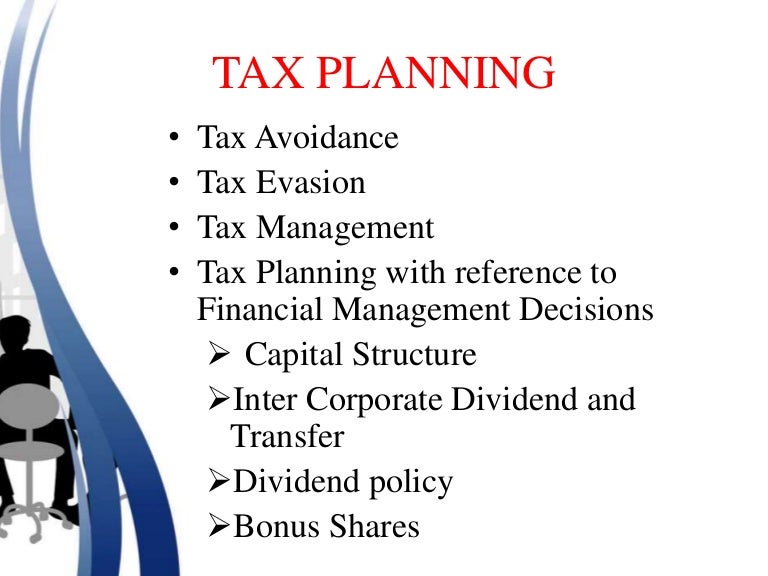Difference Between Tax Evasion And Tax Avoidance And Tax Planning

Tax avoidance is lawful but in some cases it could come in the category of crime.
Difference between tax evasion and tax avoidance and tax planning. Businesses in search of saving tax often come up with those couples of terms. Tax planning is an art to reduce your tax outgo by making sure that all the applicable provisions of our income tax act as designed to reduce your tax liability has been availed of. The difference between tax planning and tax avoidance is that tax avoidance always increases your tax risk while tax planning either reduces it or does not increase your tax risk. Criminal offence which involves the reduction of one s tax liability or obtainment of tax credits or refunds through illegal means such as the claim for fictitious or non existent expense or failure to declare taxable income.
An unlawful act done to avoid tax payment is known as tax evasion. Difference between tax planning tax avoidance and tax evasion. A planning made to reduce the tax burden without infringement of the legislature is known as tax avoidance. The difference between tax evasion and tax planning avoidance is relatively clear cut.
The following are the major differences between tax avoidance and tax evasion. Unlike tax avoidance tax planning is the practice of minimising tax liability with no intention of deceit while some practices of tax avoidance have been found to have the intention to deceive. It is an exercise by which the assessee legally takes advantage of. Features and differences between tax evasion tax avoidance and tax planning.
Tax avoidance can be done by adjusting the accounts in such a manner that there will be no violation of tax rules. Differences between tax evasion tax avoidance and tax planning. Tax avoidance refers to hedging of tax but tax evasion implies the suppression of tax. Below are key differences between tax evasion tax avoidance and tax planning to help you get better understanding.

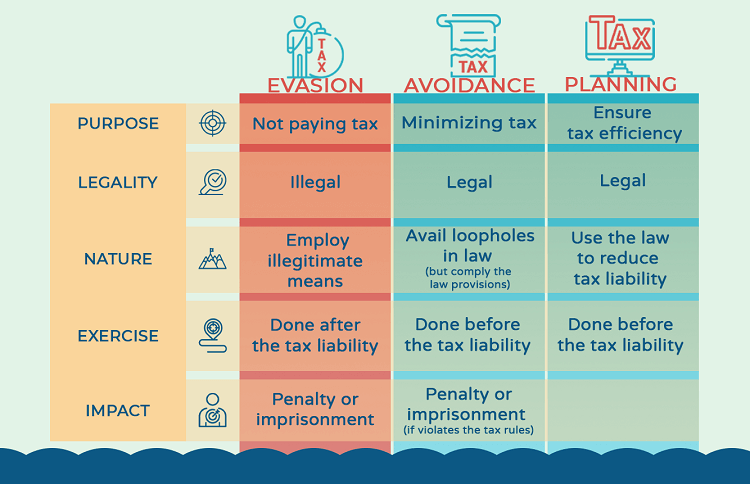
/tax-avoidance-vs-evasion-397671-v3-5b71dfc846e0fb0025e54177.png)

